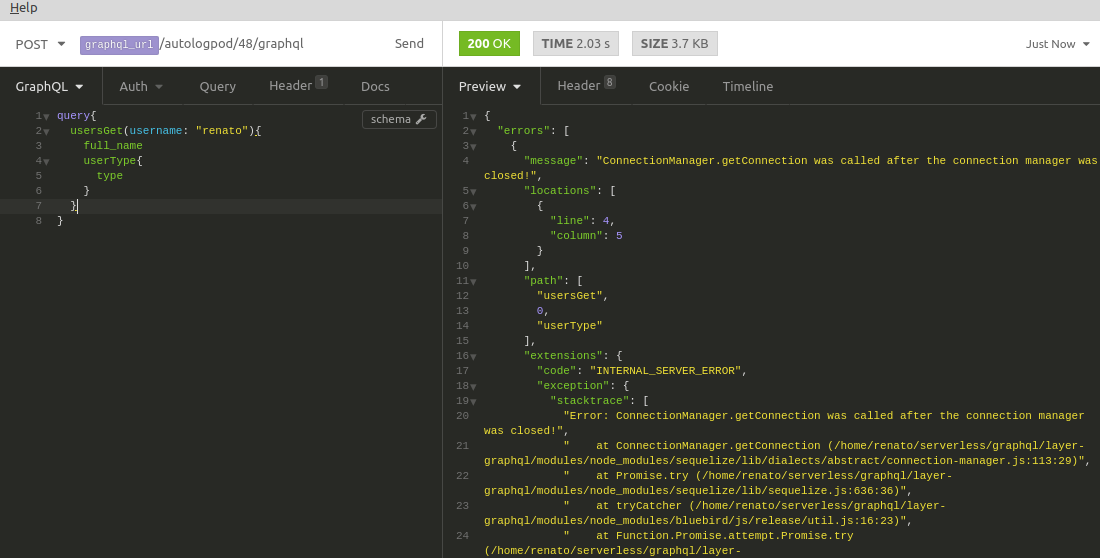I was really hoping this would work, but I'm having some problems...
Models.Sequelize.useCLS(sequelizeNamespace);
^
TypeError: Cannot read property 'useCLS' of undefined
at generateSchema (C:\Users\Funshine\Desktop\webjav\socialpirates\backend\
node_modules\sequelize-graphql-schema\dist\sequelize-graphql-schema.js:870:20)
at Function.module.exports (C:\Users\Funshine\Desktop\webjav\socialpirates
\backend\src\middleware\index.js:50:31)
at Function.configure (C:\Users\Funshine\Desktop\webjav\socialpirates\back
end\node_modules\@feathersjs\feathers\lib\application.js:59:8)
at Object.<anonymous> (C:\Users\Funshine\Desktop\webjav\socialpirates\back
end\src\app.js:61:5)
at Module._compile (internal/modules/cjs/loader.js:799:30)
at Object.Module._extensions..js (internal/modules/cjs/loader.js:810:10)
at Module.load (internal/modules/cjs/loader.js:666:32)
at tryModuleLoad (internal/modules/cjs/loader.js:606:12)
at Function.Module._load (internal/modules/cjs/loader.js:598:3)
at Module.require (internal/modules/cjs/loader.js:705:19)
at require (internal/modules/cjs/helpers.js:14:16)
at Object.<anonymous> (C:\Users\Funshine\Desktop\webjav\socialpirates\back
end\src\index.js:3:13)
at Module._compile (internal/modules/cjs/loader.js:799:30)
at Object.Module._extensions..js (internal/modules/cjs/loader.js:810:10)
at Module.load (internal/modules/cjs/loader.js:666:32)
at tryModuleLoad (internal/modules/cjs/loader.js:606:12)
at Function.Module._load (internal/modules/cjs/loader.js:598:3)
at Function.Module.runMain (internal/modules/cjs/loader.js:862:12)
at internal/main/run_main_module.js:21:11
const { GraphQLSchema } = require('graphql');
const graphqlHTTP = require('express-graphql');
var options = {
exclude: ["Users"]
}
const {generateSchema} = require('sequelize-graphql-schema')(options);
const models = require( process.cwd() + '\\src\\models\\activity.js');
app.use(
'/graphql',
graphqlHTTP({
schema: new GraphQLSchema(generateSchema(models)),
graphiql: true
})
)
module.exports = function(sequelize, DataTypes) {
return sequelize.define('activity', {
activityID: {
type: DataTypes.INTEGER,
allowNull: false,
primaryKey: true,
autoIncrement: true
},
belongsTo: {
type: DataTypes.INTEGER,
allowNull: false,
references: {
model: 'users',
key: 'id'
},
unique: true
},
profileID: {
type: DataTypes.INTEGER,
allowNull: true,
references: {
model: 'profile',
key: 'profileID'
}
}
}, {
tableName: 'activity'
});
};









